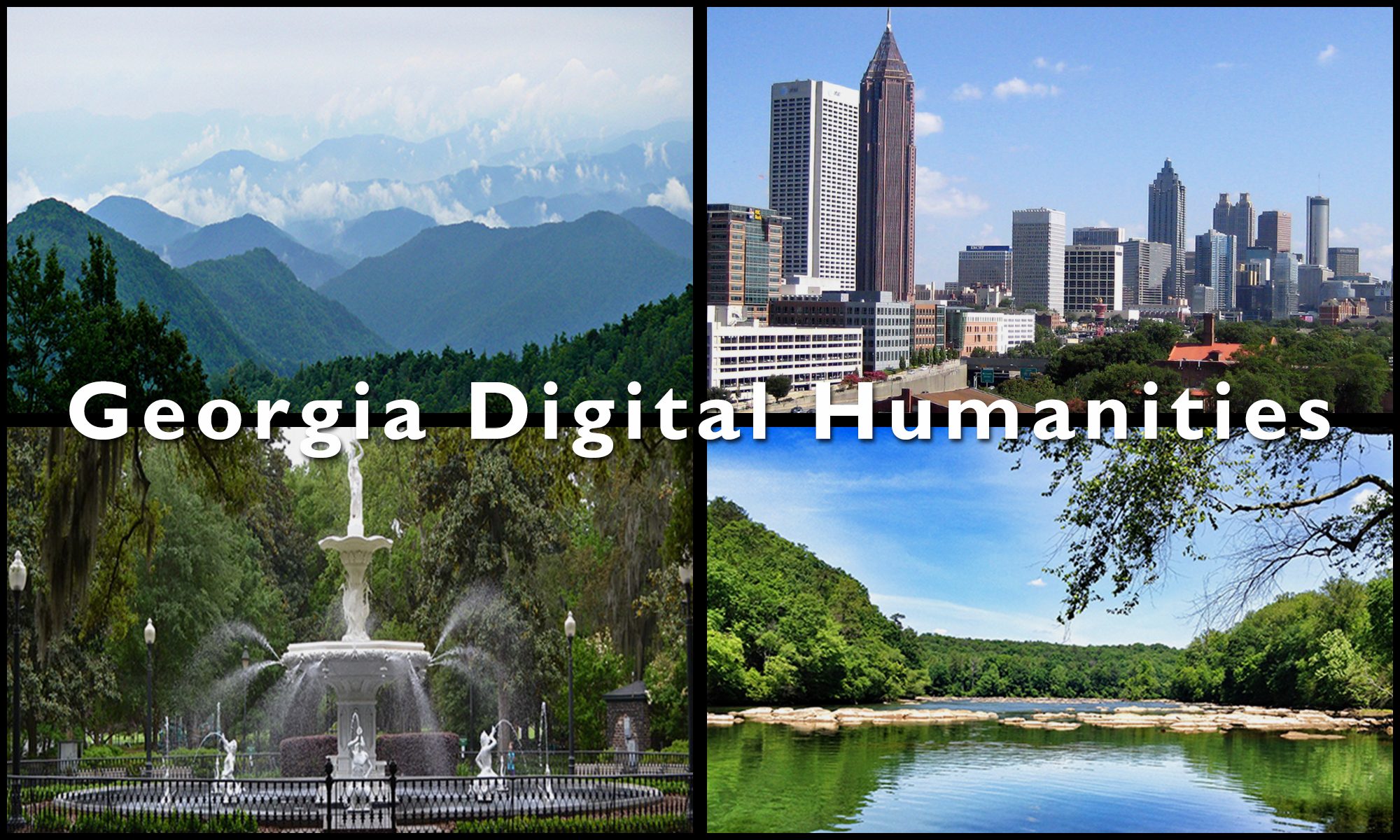Source: UGA Digital Humanities Initiative
URL: Be a Data Magician – An Excel Workshop for Humanists
In our series of data tutorials, Joey Stanley, Linguistics Ph.D student, has put together a comprehensive Excel workshop for humanists. This workshop was well attended by a diverse cross-section of the campus community including students, faculty, staff and librarians. Joey provided a broad overview of…
Read More: Be a Data Magician – An Excel Workshop for Humanists
TOME Discussion
Source: Georgia Tech Digital Humanities Lab
URL: TOME Discussion
Following the previous two blog posts where I looked at a few topic modeling interfaces, I’ll return to the lab here and write about TOME. These are based on image documentation of the project – not actual interaction with the program. Strengths: Multiple views: One of the first things I noticed was that it combines different views onto one page. This combines the previous two interfaces I discussed – where one had too many disparate views and the other had one view, but was limited in other representations as a result. Here, the main visualization can be seen at the…
Read More: TOME Discussion
InPhO Topic Explorer
Source: Georgia Tech Digital Humanities Lab
URL: InPhO Topic Explorer
This interface works in terms of visualizing a topic modeling and understanding context. However, less effort has gone into the visual and interaction design than in the last interface discussed, which makes for a steeper learning curve. Starting Interface The interface begins as a drop-down menu within the homepage, which also includes documentation on the code and how to download it. I already know that in our design, we’re focusing attention on the interface and exploration of the topic model results. We will probably want the documentation to be separate from the interface, like the interface in the previous blog…
Read More: InPhO Topic Explorer
Topics in PLMA interface
Source: Georgia Tech Digital Humanities Lab
URL: Topics in PLMA interface
To start thinking about how we might design an interface to act with topic modeling results, it’s worth looking at existing interfaces and what they do well or don’t do well. This interface by Andrew Goldstone allows for browsing topic models of articles from PMLA, the journal of the Modern Language Association of America. The model and code can be used for other sets of text – this is just an example. The interface has multiple views and ways to explore the model – something can be learned from each of these. The site as a whole, and the navigation…
Read More: Topics in PLMA interface
Georgia Digital Humanities Summit meeting
The first Georgia Digital Humanities Summit took place on December 9, at Georgia State’s CURVE data visualization lab. The summit, sponsored by the University of Georgia with support from a Mellon Foundation New Director’s Grant, and hosted by Georgia State,…
Source: UGA Digital Humanities Initiative
Topic Modeling and Digital Humanities: Overview (1)
Source: Georgia Tech Digital Humanities Lab
URL: Topic Modeling and Digital Humanities: Overview (1)
In this post: What is a topic model? UX considerations Existing techniques This will be the first post in a series of posts as we begin a new project on exploring topic modeling for the digital humanities, following the previous work of (link)TOME. A topic model is a model of how often words occur together in a group of texts. Many other posts have been written about the definition of “topic model” in detail, in addition to detailing various algorithms. http://journalofdigitalhumanities.org/2-1/topic-modeling-and-digital-humanities-by-david-m-blei/ http://journalofdigitalhumanities.org/2-1/what-can-topic-models-of-pmla-teach-us-by-ted-underwood-and-andrew-goldstone/ http://programminghistorian.org/lessons/topic-modeling-and-mallet https://tedunderwood.com/2012/04/07/topic-modeling-made-just-simple-enough/ Here, I am going to highlight some challenges of viewing, exploring, and learning from topic modeling…
Read More: Topic Modeling and Digital Humanities: Overview (1)
